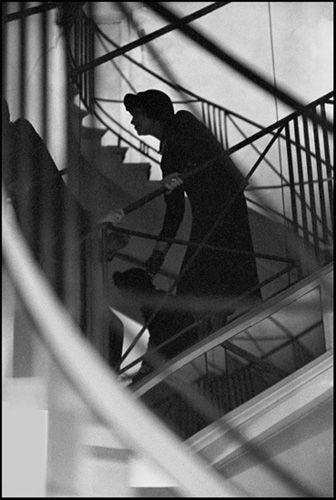
WHOEVER you are, I fear you are walking the walks of dreams,
I fear these supposed realities are to melt from under your feet and hands;
Even now, your features, joys, speech, house, trade, manners, troubles, follies, costume, crimes, dissipate away from you,
Your true Soul and Body appear before me,
They stand forth out of affairs—out of commerce, shops, law, science, work, forms, clothes, the house, medicine, print, buying, selling, eating, drinking, suffering, dying.

Whoever you are, now I place my hand upon you, that you be my poem;
I whisper with my lips close to your ear,
I have loved many women and men, but I love none better than you.


O I have been dilatory and dumb;
I should have made my way straight to you long ago;
I should have blabb’d nothing but you, I should have chanted nothing but you.

I will leave all, and come and make the hymns of you;
None have understood you, but I understand you;
None have done justice to you—you have not done justice to yourself;
None but have found you imperfect—I only find no imperfection in you;
None but would subordinate you—I only am he who will never consent to subordinate you;
I only am he who places over you no master, owner, better, God, beyond what waits intrinsically in yourself.

Painters have painted their swarming groups, and the centre figure of all;
From the head of the centre figure spreading a nimbus of gold-color’d light;
But I paint myriads of heads, but paint no head without its nimbus of gold-color’d light;
From my hand, from the brain of every man and woman it streams, effulgently flowing forever.

O I could sing such grandeurs and glories about you!
You have not known what you are—you have slumber’d upon yourself all your life;
Your eye-lids have been the same as closed most of the time;
What you have done returns already in mockeries;
(Your thrift, knowledge, prayers, if they do not return in mockeries, what is their return?)

The mockeries are not you;
Underneath them, and within them, I see you lurk;
I pursue you where none else has pursued you;
Silence, the desk, the flippant expression, the night, the accustom’d routine, if these conceal you from others, or from yourself, they do not conceal you from me;
The shaved face, the unsteady eye, the impure complexion, if these balk others, they do not balk me,
The pert apparel, the deform’d attitude, drunkenness, greed, premature death, all these I part aside.
There is no endowment in man or woman that is not tallied in you;
There is no virtue, no beauty, in man or woman, but as good is in you;
No pluck, no endurance in others, but as good is in you;
No pleasure waiting for others, but an equal pleasure waits for you.

As for me, I give nothing to any one, except I give the like carefully to you;
I sing the songs of the glory of none, not God, sooner than I sing the songs of the glory of you.
Whoever you are! claim your own at any hazard!
These shows of the east and west are tame, compared to you;
These immense meadows—these interminable rivers—you are immense and interminable as they;
These furies, elements, storms, motions of Nature, throes of apparent dissolution—you are he or she who is master or mistress over them,
Master or mistress in your own right over Nature, elements, pain, passion, dissolution.

The hopples fall from your ankles—you find an unfailing sufficiency;
Old or young, male or female, rude, low, rejected by the rest, whatever you are promulges itself;
Through birth, life, death, burial, the means are provided, nothing is scanted;
Through angers, losses, ambition, ignorance, ennui, what you are picks its way.
Walt Whitman
Photos by Robert Doisneau
 Photo by Robert Doisneau, circa 1960
Photo by Robert Doisneau, circa 1960



























































